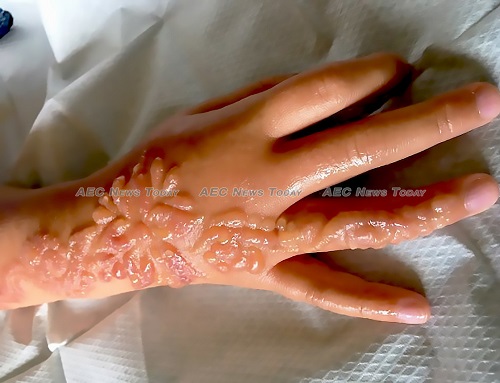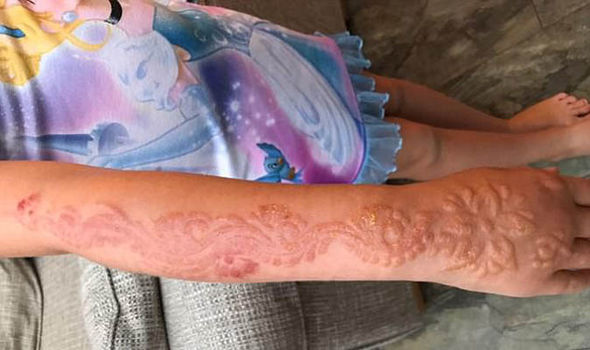Avoid Black Henna Tattoos Or Risk Permanent Scaring
Source: AEC
Black henna tattoos are a popular holiday ‘souvenir sought after by many visitors to Asean’s holiday resort locations due to their allegedly non-permanent nature and the mistaken belief that they are safe, even for children.
However, an ever increasing number of tourists are learning — painfully — not to believe the claims. Not to be confused with natural henna tattoos made from the powdered dried leaves of the Lawsonia inermis plant and which is a brown-orange colour, black henna tattoos derive their colour from chemicals such as methyl acrylate and paraphenylenediamine (PPD). Both can cause severe allergic reactions, blisters, open sores, and scarring.
A recent bout of severe scaring and allergic reactions to black henna tattoos has seen health authorities from as far flung places as Australia, England, and China issuing warnings to those travelling abroad, particularly to the Indonesian island of Bali.
In China, which has replaced Australia as the main source of tourists to Bali, a man was taken to hospital in the central province of Hubei after returning from the Indonesian island with a black henna tattoo on his arm.

According to a report in the South China Morning Post (SCMP), rather than disappearing in a couple of days as he had been told, he first developed an itch in his arm that got worse day-by-day, before turning red and swelling badly.
Chen Liuqi, a dermatologist at Wuhan Number One Hospital, was quoted by the SCMP as saying he he had seen several similar cases and warned that methyl acrylate could cause permanent scarring or even death.

A henna tattoo shop owner in Chengdu, capital of Sichuan province, reportedly told the publication, “usually the black ink contains methyl acrylate”, adding that while the black colour made the tattoos look real, “the risks are really high”.
Australia’s Department of Foreign Affairs and Trade (DFAT) similarly advises Australians travelling abroad to avoid temporary black henna tattoos “as they often contain a dye which can cause serious skin reactions”.
One such victim was the eight-year-old daughter of Erin Gutschlag from South Australia who suffered burns to her leg from a black henna tattoo and faces a high risk of permanent scaring.
“There were no signs of reaction until four or five days later when it became itchy and a couple of spots appeared. She might now be allergic to hair dye or even some sunscreen because of this exposure”, Ms Gutschlag told the Daily Mail.

